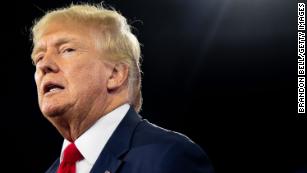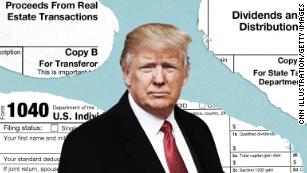
(CNN)The FBI search of former President Donald Trump‘s residence in Florida on Monday signaled an extraordinary escalation of an investigation into the handling of certain documents from his presidency and raises questions about whether his legal exposure extends beyond whether he improperly took government records when he left the White House.
What exactly the FBI was searching for and why is still unknown. But to obtain a search warrant, investigators would have had to show a judge that there was probable cause of a crime and that evidence of that crime was located at Mar-a-Lago, Trump’s Palm Beach resort.
Here’s what to know about the legal significance of the search, which comes as Trump is preparing a potential 2024 presidential run, and what could come next:
What would it have taken for the DOJ to have obtained the search warrant?
To get judicial approval for the search, investigators would have had to present to a judge a detailed affidavit that would establish that probable cause exists to believe that a crime had been committed and that that evidence of that crime exists in recent days at the property where the search is being sought.
The search warrant would have been filed under seal, meaning that its details are not publicly available at the moment (though they could become public in the future). The federal courthouse in West Palm Beach lists only one sealed search warrant application since June that was still not closed as of Friday, according to the court’s public register of cases.
But before prosecutors got to the point of asking a magistrate judge to approve the warrant, in order to move forward with a search that carried such historical and political significance, investigators would have had to obtain the OK from the highest levels of the Justice Department, legal experts told CNN.
Former DOJ officials told CNN that it was likely that, at the very least, Deputy Attorney General Lisa Monaco would have had to have given the green light and that Attorney General Merrick Garland and/or FBI Director Chris Wray may have also been consulted.
Enter your email to sign up for the CNN Meanwhile in America Newsletter.
close dialog
“Not only would the investigators have to suggest it, not only would a line prosecutor have to agree with it, but multiple layers of management would have had to approved of it — all the way up to the Attorney General,” Daren Firestone, a former DOJ attorney, told CNN.
The Justice Department has declined to comment.
What does this mean for Trump’s legal exposure?
To take the extraordinary step of executing a search warrant on a former president’s home suggests investigators are looking at more than what the National Archives had previously recovered from Mar-a-Lago, according to legal experts.
In January, the National Archives retrieved 15 boxes of records from Mar-a-Lago, including materials that had been identified as classified, but activity around those boxes have been quiet since the spring.
“I really don’t believe that the department would have taken such a significant step as pursuing a search warrant for the president’s residence about information they already had back,” Andrew McCabe, a former FBI deputy director and CNN contributor, said on CNN “Newsroom.” “There had to be a suspicion, a concern and indeed specific information that led them to believe that there were additional materials that were not turned over.”
Before the news of Monday’s search, a law known as the Presidential Records Act had been forefront of public speculation about Trump’s legal jeopardy as other investigatory steps were taken related to the handling of documents from Trump’s White House. That law — passed after Watergate to make clear that certain records from a presidency belong to the public and not the former office holder — is not a criminal statute and has been seen as relatively toothless law.
A search warrant and the presence of the FBI signifies a criminal investigation. There are other record retention statutes that bring with them criminal penalties — such as the Espionage Act — but at this point it’s not clear what criminal statutes have been implicated in the Justice Department investigation.
It is a crime to destroy or remove federal records, or to mishandle classified documents. There are other federal laws that aim prevent the tampering of information during an investigation.
Earlier this year, the Justice Department issued subpoenas for presidential materials including classified documents that the National Archives had previously retrieved. The FBI also interviewed Trump aides at Mar-a-Lago in the spring as part of the probe, according to a source familiar with the matter.
For investigators to escalate their probe with a search, “there would have to be something serious enough that would merit more than a slap on the wrist,” Firestone, now a partner at the DC-based firm Levy Firestone Muse, said.
It’s also notable that the DOJ hasn’t gone the route of civil litigation against the former president for how he handled the documents in question. Just last week, the Justice Department filed a civil lawsuit against former Trump White House official Peter Navarro, alleging that Navarro had violated the Presidential Records Act and seeking a court order compelling him to turn over emails from a private account that he used while working at the Trump White House.
Why now?
The search was executed two months after the previously unreported June 3 meeting between DOJ investigators and Trump’s attorneys at the resort. During the visit, reported by CNN on Monday, four investigators, including the chief of the Counterintelligence and Export Control Section, toured a basement where boxes of materials were being stored.
Five days later, investigators sent Trump’s attorneys a letter asking them to further secure the room storing the documents, prompting aides to add a padlock to the room.
For the FBI to execute a search warrant two months later hints that the federal officials were not satisfied with what they saw on the visit or that they were not confident in the voluntary cooperation they were receiving from Trump’s team, some legal experts said. It’s possible federal officials also needed official sign off to repossess classified records.
“The fact that the FBI learned Trump still had documents at [Mar a Lago] in June, and felt the need to come back two months later with a search warrant, indicates to me that the agency has evidence that Trump and his staff were holding onto additional classified records and not taking any steps to properly return them to the Archives,” Bradley Moss, a national security lawyer, told CNN in an email.
‘Genius’: Bash on Trump’s political positioning after FBI search 03:04
It also may have taken months for the Justice Department to decide to do search and how it should go about it.
When the FBI was leaving Mar-a-Lago, Trump’s team would have received a document akin to a receipt of what was taken. But DOJ can be as vague as it wants in that documentation.
More broadly, the Justice Department can keep large swaths of its investigation secret, as the Justice Department made clear in court filings Monday evening around its search of John Eastman, the former Trump lawyer who spearheaded plots to subvert the 2020 election.
In that filing — where the Justice Department was arguing against an Eastman request that January 6 investigators return devices seized from him in late June in New Mexico — prosecutors said there was no obligation for the Department to share with Eastman more details about the status of its probe.
“The Government has no doubt that the movant would like to have full knowledge of the Government’s investigation and the ability to ‘engage [federal agents] in a debate over the basis of the warrant,” the filing said. “But the law only, and properly, requires a neutral magistrate judge to find probable cause to search for and seize any electronic devices on his person; it does not require that the person searched know the basis for the warrant.”
What happens next?
It still not known how off guard Trump’s lawyers were with the FBI actions taken Monday and what Trump’s team has been arguing to the DOJ about the handling of the documents in previous interactions with investigators.
Trump could take a pre-emptive legal step to challenge in court the way the FBI handled the search, perhaps with the goal of getting thrown out any evidence investigators had obtained or at least to try to get more information about what investigators in probing.
But without such court activity, the next steps of the investigation could very well continue in secret.
Can Trump be barred from running for president if he is found to have violated records law?
Another law that may be implicated by the FBI’s search is one barring the willful concealment, removal or mutilation of government records. That law threatens as a punishment disqualification “from holding any office under the United States.”
However, there are questions about the constitutionality of that law and its applicability to a Trump presidential run, if he were to be convicted under it.
Because the Constitution sets specific qualifications for presidential office — and lays out a separate impeachment process for disqualifying presidents from holding office in the future — some argue that Congress would not have the authority to enact such a statute that would apply to a presidential candidate.
Source:edition.cnn.com/2022/08/09


